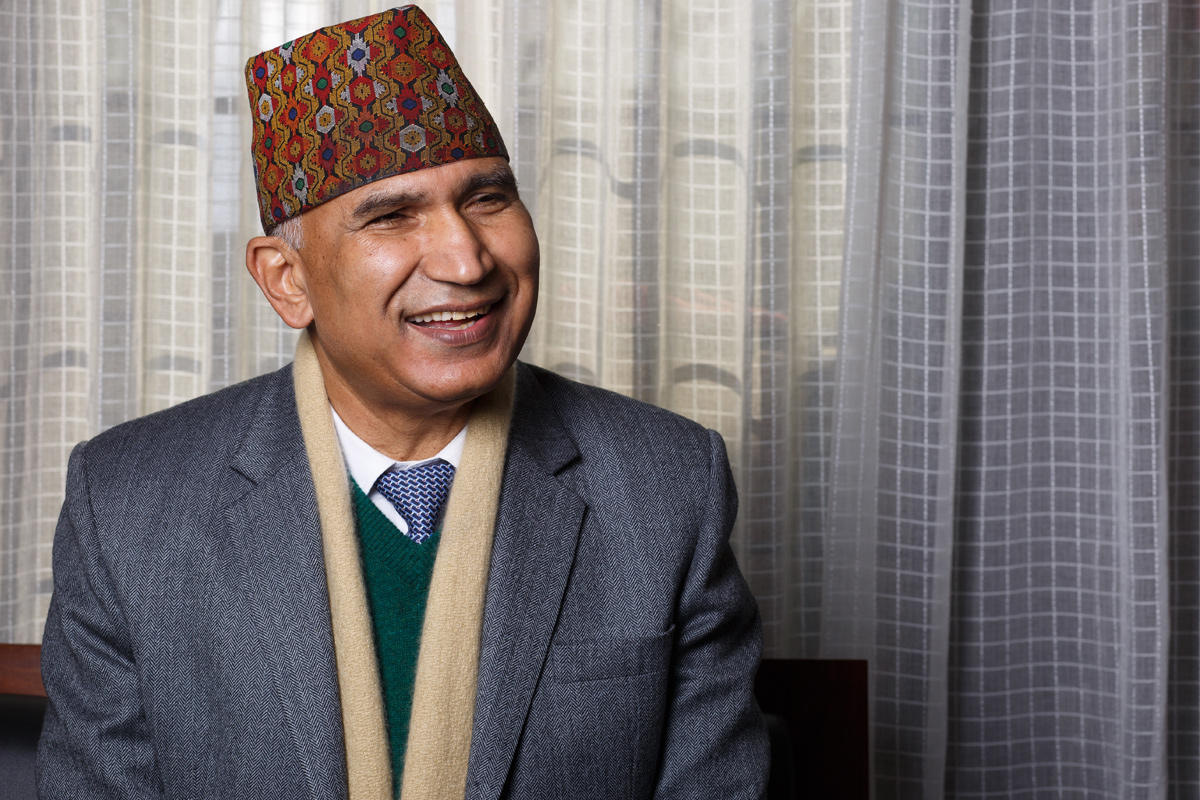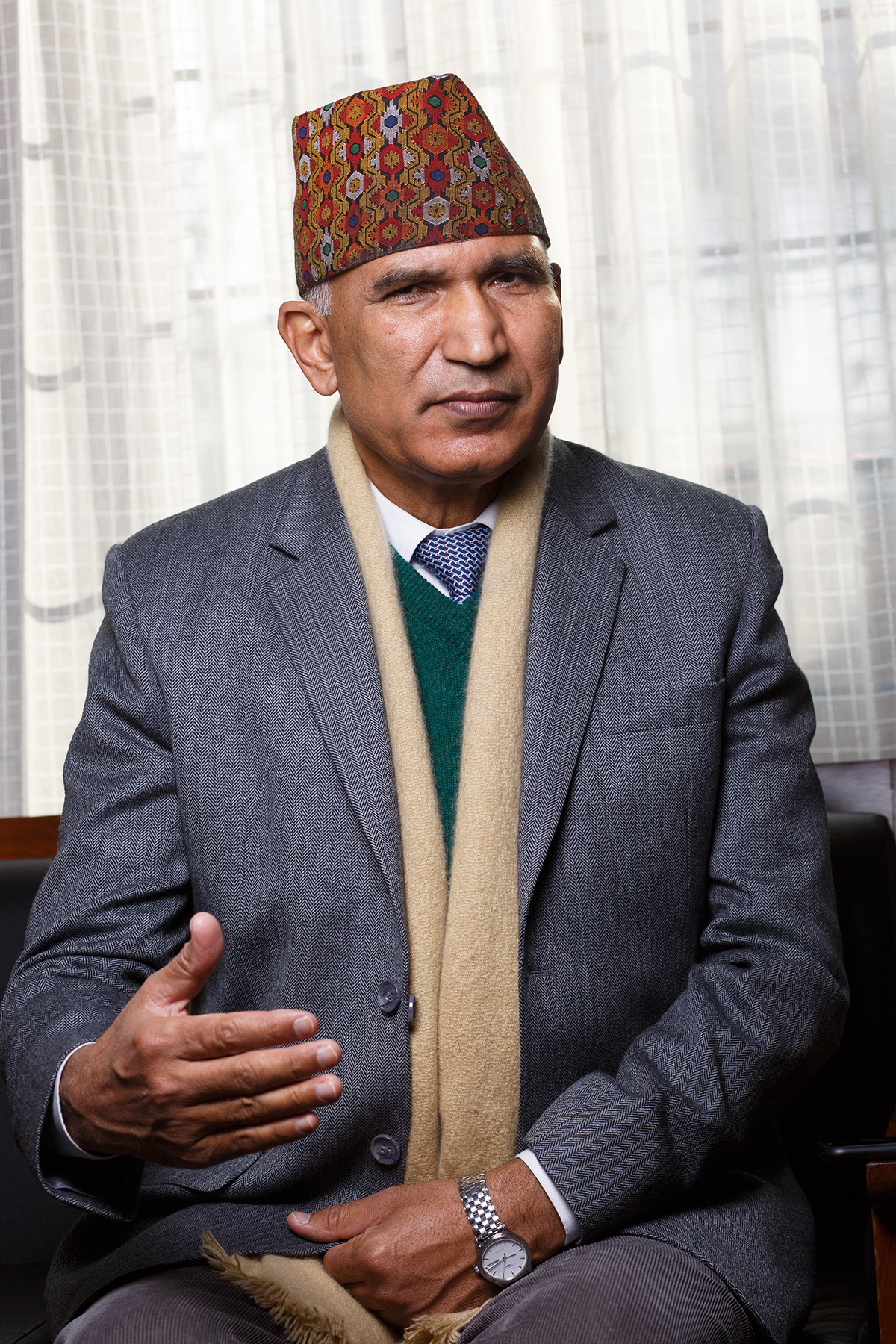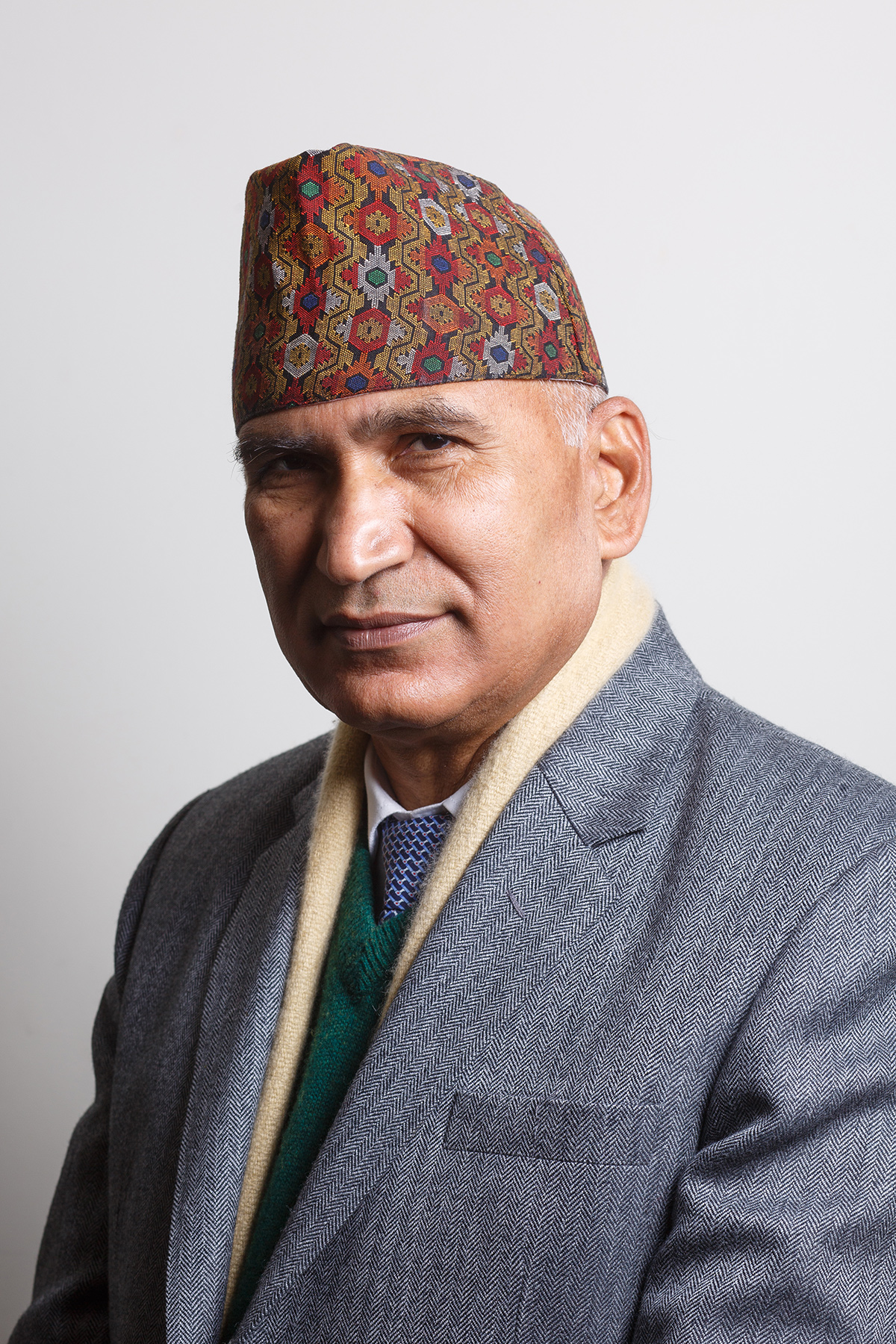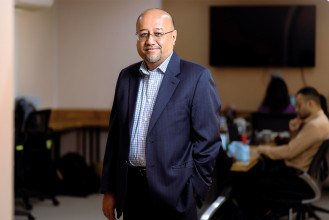
CAN THE NEW FM DELIVER
It is an interesting coincidence in the career of Nepal Communist Party (NCP) General Secretary, Bishnu Prasad Paudel that he is appointed Cabinet Minister yet again when the country is grappling with a crisis.
Paudel had announced an energy emergency in 2008/09 when he was Energy Minister in the coalition government led by Pushpa Kamal Dahal. Electricity was scarce commodity and people were habituated to hours of rolling blackouts every day. The energy crisis had crippled the economy. Paudel had then introduced plans and programs to cope with the crisis declaring it an emergency.
Later, Prime Minister KP Sharma Oli appointed him as Finance Minister when the country was coping with supply side crisis during the 2015/16 Indian blockade. He had realigned budgetary priorities to streamline supplies in a bid to prevent humanitarian crisis through issuance of a whitepaper on the economic situation at that time.
Once again, he is appointed Finance Minister by Prime Minister KP Sharma Oli in October 2020 at a time when the Covid 19 crisis is looming large due to lack of proper medical solutions globally and inept systems in the country. And now the KP Sharma Oli led government is also encountering and challenged by a political crisis. After dissolution of the house of representatives on December 20, 2020, the government automatically turned into a caretaker government and will be holding elections in April and May, 2021.
This is a second stint for Minister Paudel in the Finance Ministry and he has already initiated some important steps to cope with the Covid 19 crisis, recovery of the economy, and effective delivery of public services. Since he assumed office, the Finance Minister has made some notable efforts such as laying the foundation for hospitals in the 396 local levels carried out as a national campaign, set the guidelines for the continuation of Covid 19 struck businesses with subsidised credit facility, the commission being charged by stock brokers has been reduced substantially, expedition of the settlement of insurance claims related to Covid 19, provision of customs duty on import of books has been withdrawn, but this is just the beginning. There’s much to be done yet and the environment in which to achieve targets is not most conducive.
In this edition of Business 360, Minister Paudel shares his views on his plans to revive the economy, manage resources for mass immunisation against Covid 19 and manage funds for the upcoming elections. Excerpts:



The government is committed to providing free vaccination and we are looking forward to a credible and globally acclaimed vaccine that will abide with the WHO standards. For us, safety of the people is precious. Meanwhile, the Election Commission will manage all the health safety standards during the elections.
As a Cabinet Minister who is often encountered with some sort of unique crisis, how do you view these challenges?
I think this is only a coincidence because we all have to face different situations in our lives. It is the same with the life of the nation. In fact, any crisis takes the litmus test of leadership. It is an opportunity for a leader to prove himself. I agree that the intensity of the crisis is larger and noticeable during my different tenures in the government as energy minister and finance minister, however we are always working to resolve problems almost every day of our lives, and it is the duty of the government to ensure effective public service delivery. I have always tried to harness output to the best extent possible for the people during my tenure in government.Along with dissolution of the house of representatives, the government has mandated itself to carry out elections in April and May. Do you think it will be possible within the stipulated time?
I am confident that the elections will be held as scheduled in two phases: April 30 and May 10. The government does not have any option but to take a fresh mandate of the people when the Prime Minister elected by the vast majority is challenged by vested interest groups within the ruling party. The Prime Minister is forced to dissolve the parliament and seek a fresh mandate from the people to prevent similar political instability of the past. In democracy, it is the most valid way to resolve such problems, because people are sovereign to decide and choose their government.Our own experiences show that the country falls into instability after the dissolution of parliament and most Prime Ministers have tried to dissolve the parliament when they have to seek vote of confidence in the parliament. It is a repetition. What is your opinion?
We have also had the experience of re-election of the Constituent Assembly as the first one failed to promulgate the constitution and got dissolved. At that time too, the country went into election through special arrangement of the temporary government in between dissolution of first Constituent Assembly to formation of second Constituent Assembly through election. Election is the one democratic process to obtain people’s voice or their mandate.Is holding elections not an additional liability considering that the country is facing severe resource crunch. In five months of the ongoing fiscal, there is a gap of almost Rs 34 billion between targeted and collected revenue. Additionally the government is obtaining foreign loans. How do you plan to manage resources as the Finance Minister?
These concerns are genuine. We are capable of arranging resources for the election and vaccinations as well. The government has already announced that it will deliver free vaccinations to the people. As you know that our recurrent and development expenses have plunged due to Covid crisis and despite efforts to accelerate the economy, I assume people will not be confident to begin normal life until they get proper vaccination. The government is committed to providing free vaccination and we are looking forward to a credible and globally acclaimed vaccine that will abide with the WHO standards. For us, safety of the people is precious. Meanwhile, the Election Commission will manage all the health safety standards during the elections.Are you planning for a supplementary budget to manage funds for these liabilities because the FY 2020-21 has not allocated resources for election?
Actually not. We don’t need to bring a supplementary budget. We can manage the resources from this budget as the resources allocated under different headings may not be spent in this fiscal. We will realign the priorities from the recurrent expenditure and there is always some allocation in the budget for contingency expenses such as unforeseen liabilities including natural disasters.Since you joined the government, intra-party conflict has kept you more occupied with party affairs than at the ministry as you also hold the role of General Secretary in the party. Despite some of the actions like building 396 hospitals at the local level as a national campaign, revival of the pandemic hit SMEs through arrangement of subsidised credit, early settlement of the COVID19 insurance claims, substantial reduction in broker commission, what will be your next steps to address the manifold challenges in the economy?
Despite my intensive engagement in party activities, I have been trying to manage and allocate time for my job in the ministry. It is true that I could not provide much time based on the sensitivity of the current situation. However, I do try to give sufficient time to the ministry as I am responsible to the people for the ministry’s delivery. Some of the actions that you have mentioned predominantly signal what will be my focus in the ministry. I will be focusing on revival of the economy, reforms and effective as well as efficient service delivery to the public including the soon to come immunization program. More importantly, I want to stress that facts and figures show that the government of Nepal is properly managing the crisis. In regard to managing crisis both in the human lives and the economy, we are executing various programs from free treatment of the Covid 19 infected people to flexible debt moratorium and subsidised credit to private businesses to help them revive. But the immediate challenge for us is to ensure vaccination for our people. The immunization program will begin from the frontliners, senior citizens, Covid 19 infected people at high risk like those fighting with chronic diseases already and then gradually to all.
It will be too early to disclose any figure. The government has assumed optimum threshold of certain resources, based on that we have announced free vaccination for Nepalis.
There are different assumptions from the donor community, public health experts and the government, what is amount required to carry out immunization for all?
It will be too early to disclose any figure. The government has assumed optimum threshold of certain resources, based on that we have announced free vaccination for Nepalis.People still have grievances regarding the settlement of the Covid 19 insurance? You have repeatedly instructed the Beema Samiti (insurance sector regulator) to expedite the claim settlement, why then is not being executed properly?
We have asked the Beema Samiti to submit the progress report every day based on the inspection of service provider companies. Now the graph of the claim settlement shows an upward trend but it is still unsatisfactory. I have asked the insurance sector regulator to make arrangements to ensure that claim settlements are made within a week if documents are in place. People must get their claims without hassle, promptly and in a dignified manner.You have also started interacting with the leadership of various ministries to expedite development projects. However some of the ministers are now newly appointed, will this impact or delay the process?
Slow capital expenses are a major challenge. I have started interacting with each ministry that is responsible for executing development projects. I don’t think the leadership change in the ministry will have a negative impact in accelerating the stagnated development expenditure. The new leadership in various ministries can take forward the development works. We all know the causes of the slow development expenditure and we will not just stop at pinpointing the causes but are committed to intervene on the impediments and take forward the development works.When are you planning the mid-term review of the budget?
We will carry out a review on a stipulated schedule and come up with an intervention plan for proper execution of the budget.Not only the fiscal side, we have witnessed slackness in the monetary policy. The major tool for the revival of the economy is subsidised credit. How can we expect that from a lopsided credit growth which reflects lack of confidence among investors?
Fiscal policy and monetary policy have complementarities in each other. Development expenses are directly linked with credit demand of the private sector. We are also going to execute Business Continuation Guidelines that offer credit at 5% interest rate. There is a large chunk of refinancing credit to the micro, small and medium enterprises that are underutilised. I had frequent discussions with Nepal Rastra Bank, bankers, private sector umbrella bodies, product specific associations and others. I think this is the right time to avail loans to revive and expand businesses. Cost of funds is going down even in commercial loans; this is why entrepreneurs should capitalise on cheaper credit.The private sector is looking for hand holding from the government in areas of waivers in some fees, further deferral in revenue submission, loan repayment, elimination of out dated laws to help survival and gradual recovery of hard-hit sectors. How do you view this?
We are serious towards helping the private sector because they are the driving force for growth and jobs. The government can collaborate with the private sector to achieve common goals of employment generation, developing a strong production base in the country, empowering people for stable, sustained and inclusive economic development of the country. We know that the Covid 19 pandemic has hit the private sector hard. Pandemic has impacted all, however the intensity is different. The government through its limited resources can help only the needy like the vulnerable population, micro and small businesses that are struggling to revive. We are open to listening and interacting with the private sector. We will definitely help them if the law, our strength and capacity allows us. We have provided waiver, deferrals in payment of revenue and fees in difficult times. We have also deferred the payment of bank loans considering the crisis and income shocks despite our limited capacity to incentivize people through such means. The private sector is well informed about the limitations and capacity of the government. I don’t mean we cannot incentivize the private sector; we will address them based on the intensity of shock and the risks they are bearing.The gap between revenue collection targets and actual achievement is widening? How do you plan to narrow it down?
Restriction in people’s movement to stem the spread of virus dampens our economic activities. Though almost a month before the Dashain festival, economic activities were streamlined with demand gradually peaking. The gap in revenue collection in the initial months will be fulfilled in coming months as development expenses will rise, demand for loans in the private sector has also been gradually surging. On the other hand, we have scheduled the parliamentary elections in April and May, this will trigger economic activities as the expenses from the government, political parties will rise. On the other hand, our tax administration is focusing on expanding the tax bracket. The measures initiated to prevent revenue leakages once effective will further sharpen the revenue leakage control and prevention measures. Thus, we should be able to meet the revenue target.In context of the dissolution of the parliament, the public suspects that government’s expenses will not be transparent and that corruption could rise in the absence of the parliament. How will you assure the public of accountability in the absence of a check and balance mechanism?
We are going to hold parliamentary elections in April and May. There will be a parliament after that and it can and will discuss the government expenses, pinpoint irregularities and recommend action. There are other antigraft bodies including the constitutional body, Commission for the Investigation of Abuse of Authority (CIAA). The National Vigilance Centre under the Prime Minister Office is also monitoring procurement and execution at the field level. Government’s decisions can even be challenged at the court. On top of that, Prime Minister KP Sharma Oli has vowed for zero tolerance against corruption. The government is fully committed towards maintaining transparency and accountability. We fully honour the public finance norms that demand transparent, effective and efficient expenditure of the taxpayer’s money. I would also like to request the people, media and civil society to watch the government’s works carefully and challenge them.
Published Date: January 14, 2021, 12:00 am
Post Comments
E-Magazine
RELATED In the Lead



-1767340083.jpg)
